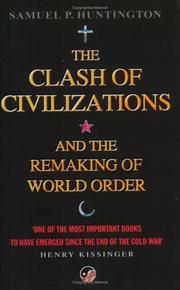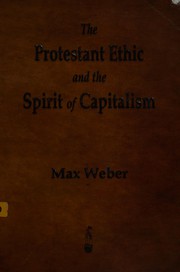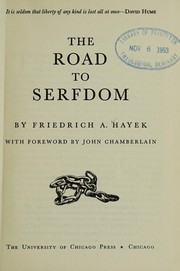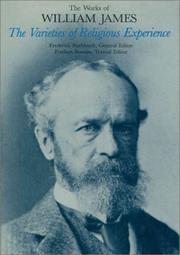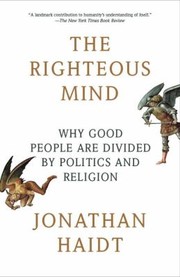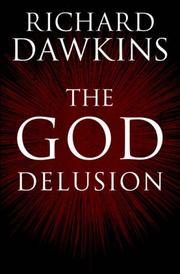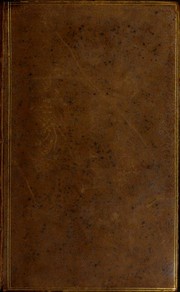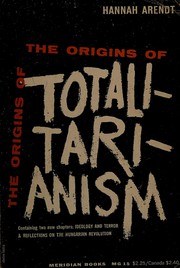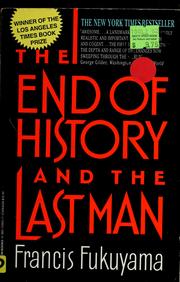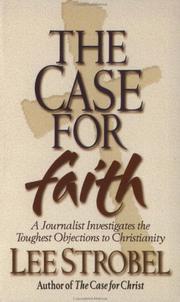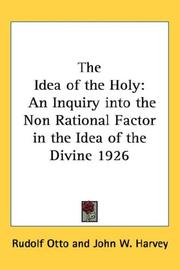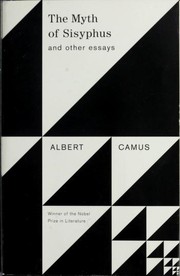If you’re seeking a thought-provoking exploration of the complex relationship between religion and politics, look no further. We’ve curated a list of the 20 best books on religion and politics that will challenge your beliefs, ignite your curiosity, and shed light on the forces shaping our world. From historical analyses to contemporary critiques, these captivating reads offer diverse perspectives and deep insights into the intersection of faith and power. Whether you’re a scholar, a student, or simply a curious reader, these religion and politics books are essential additions to your reading list.
Contents
- 1 The Clash of Civilizations and the Remaking of World Order
- 2 The End of Faith: Religion, Terror, and the Future of Reason
- 3 The Protestant Ethic and the Spirit of Capitalism
- 4 The Power of Myth
- 5 The Road to Serfdom
- 6 The Varieties of Religious Experience
- 7 The Politics of Jesus: Rediscovering the True Revolutionary Nature of Jesus’ Teachings and How They Have Been Corrupted
- 8 The Future of an Illusion
- 9 The Righteous Mind: Why Good People Are Divided by Politics and Religion
- 10 The God Delusion
- 11 The Prince
- 12 The Case for Christ: A Journalist’s Personal Investigation of the Evidence for Jesus
- 13 The Origins of Totalitarianism
- 14 The Bible Unearthed: Archaeology’s New Vision of Ancient Israel and the Origin of Its Sacred Texts
- 15 The Myth of Religious Violence: Secular Ideology and the Roots of Modern Conflict
- 16 The Politics of Religion: A Survey
- 17 The End of History and the Last Man
- 18 The Case for Faith: A Journalist Investigates the Toughest Objections to Christianity
- 19 The Idea of the Holy
- 20 The Myth of Sisyphus
- 21 Conclusion
The Clash of Civilizations and the Remaking of World Order
by Samuel P. Huntington
The Clash of Civilizations and the Remaking of World Order by Samuel P. Huntington is a groundbreaking book on the intricate relationship between culture, ideology, and international politics. It delves deep into the realm of religion and politics, exploring the crucial role they play in shaping global dynamics.
In this thought-provoking work, Huntington argues that the primary source of conflict in the post-Cold War era will not be primarily ideological or economic, but rather cultural. He contends that the world is divided into distinct civilizations, each characterized by its unique set of values, beliefs, and traditions. These civilizations, ranging from the Western to the Islamic, from the Hindu to the Confucian, are bound to clash due to their fundamental differences.
Huntington’s analysis revolves around the notion that cultural identities and religious affiliations are powerful forces that shape people’s behavior and attitudes towards one another. He asserts that clashes between civilizations will increasingly define the international system, as these cultural fault lines become the primary sources of conflict.
The book provides a comprehensive and thought-provoking framework for understanding the complexities of international politics in the modern era. It challenges conventional wisdom and offers a fresh perspective on how religion and politics interact on the global stage.
Huntington’s work has sparked intense debate and controversy since its publication in 1996. Critics argue that it simplifies complex global dynamics and oversimplifies the role of religion in international relations. However, regardless of one’s stance, there is no doubt that The Clash of Civilizations and the Remaking of World Order remains a seminal text in the field of international relations, offering valuable insights into the intricate interplay between culture, religion, and politics.
The End of Faith: Religion, Terror, and the Future of Reason
by Sam Harris
The End of Faith: Religion, Terror, and the Future of Reason by Sam Harris is an eye-opening and thought-provoking book that delves into the fascinating intersection of spirituality and government. This captivating book on religion and politics tackles the complex relationship between belief systems and political ideologies, exploring the ways in which religion can both inspire acts of compassion and be manipulated to justify acts of terror.
In this remarkable book about religion and politics, Harris argues that religious dogma often inhibits critical thinking and hinders progress in society. With a blend of eloquence and conviction, he challenges long-held religious beliefs and questions the validity of religious doctrines. Harris highlights the dangers of religious extremism and the detrimental impact it can have on both individuals and nations.
Throughout the book, Harris makes a compelling case for the importance of reason and evidence-based thinking in shaping our future. He argues that we must prioritize the values of scientific inquiry and rational discourse over blind faith and religious doctrine. By doing so, he believes we can create a more peaceful and harmonious world.
This captivating religion and politics book is not just an intellectual exploration but a call to action. Harris urges readers to embrace a more secular society, where the influence of religion on public policy is diminished, and reason is elevated as the guiding force in decision-making.
The End of Faith challenges readers to examine their own beliefs, encourages open dialogue, and pushes us to consider the potential consequences of a society driven solely by religious ideology. Whether you are deeply religious, a skeptic, or somewhere in between, this book is sure to spark fascinating conversations and provoke introspection about the role of religion in our world.
The Protestant Ethic and the Spirit of Capitalism
by Max Weber
The Protestant Ethic and the Spirit of Capitalism is a captivating book on the intricate relationship between religion and politics. Max Weber, a renowned sociologist, delves deep into the origins of capitalism and its connection to the Protestant Reformation. This thought-provoking work explores how religious beliefs and values shape economic systems and societal structures.
The Power of Myth
by Joseph Campbell and Bill Moyers
The Power of Myth is an extraordinary journey into the realms of spirituality and governance, a captivating exploration of the intricate interplay between belief systems and political structures. This book on religion and politics, written by the renowned scholar Joseph Campbell in collaboration with the insightful journalist Bill Moyers, delves deep into the rich tapestry of human culture, revealing the profound connections between our spiritual yearnings and our quest for power.
With eloquent prose and enlightening conversations, Campbell and Moyers take us on a spellbinding odyssey through the myths and legends of various civilizations, from ancient Greece to Native American tribes, from Hinduism to Christianity. They skillfully weave together the threads of these diverse narratives, illuminating the timeless truths they contain and their relevance to our modern world.
The book about religion and politics is a thought-provoking exploration of the ways in which our religious beliefs shape our political ideologies and vice versa. It challenges us to examine the underlying motivations behind our actions, to question the narratives that drive our societies, and to recognize the power of myth in shaping our collective destiny.
In this religion and politics book, Campbell and Moyers go beyond the superficial differences that often divide us and reveal the universal themes that unite humanity. They show us that, regardless of our individual faiths or political affiliations, we are all bound by the same fundamental human experiences and aspirations.
With its engaging storytelling and profound insights, The Power of Myth invites us to embark on a transformative journey of self-discovery and societal reflection. It reminds us that, in the grand tapestry of existence, religion and politics are not separate entities but interconnected forces that shape our understanding of the world and our place within it.
So, join Campbell and Moyers on this enlightening adventure, and discover the power of myth to illuminate the complex interplay between belief systems and political structures. Brace yourself for a captivating exploration of the profound connections between our spiritual yearnings and our quest for power. Get ready to challenge your assumptions, expand your horizons, and embark on an extraordinary journey into the heart of the human experience.
The Road to Serfdom
by Friedrich Hayek
The Road to Serfdom by Friedrich Hayek is a captivating exploration of the perilous path that societies can take when they intertwine the realms of religion and politics. This thought-provoking book delves into the intricate relationship between these two spheres, shedding light on the potential dangers that arise when they become inextricably linked.
The Varieties of Religious Experience
by William James
The Varieties of Religious Experience, written by William James, is a captivating exploration of the intricate relationship between spirituality and governance. This influential book on religion and politics delves into the depths of human experience, shedding light on the profound impact that religious beliefs have on society and its politics. James, a renowned philosopher and psychologist, takes readers on a thought-provoking journey, examining the diverse and multifaceted ways in which individuals express their spirituality, and how this shapes their attitudes towards power, authority, and social systems. With his astute observations and eloquent prose, James offers a fresh perspective on the intersection of faith and politics, making this book about religion and politics a timeless masterpiece. Whether you are deeply religious, politically engaged, or simply curious about the intricate dynamics of human behavior, this captivating religion and politics book is bound to leave a lasting impression.
The Politics of Jesus: Rediscovering the True Revolutionary Nature of Jesus’ Teachings and How They Have Been Corrupted
by Obery M. Hendricks Jr.
Obery M. Hendricks Jr.’s The Politics of Jesus: Rediscovering the True Revolutionary Nature of Jesus’ Teachings and How They Have Been Corrupted is a thought-provoking book that delves into the intersection of spirituality and social justice. This captivating book on religion and politics challenges conventional interpretations of Jesus’ teachings and sheds light on how they have been distorted over time.
Hendricks argues that Jesus was not just a religious figure, but a radical revolutionary who challenged the oppressive systems of his time. He explores how Jesus’ message of love, compassion, and liberation has been co-opted by various political and religious institutions to maintain power and control.
By examining key biblical passages and historical context, Hendricks uncovers the radical nature of Jesus’ teachings and their relevance in today’s world. He tackles topics such as poverty, wealth inequality, racial injustice, and environmental degradation, showing how Jesus’ teachings provide a blueprint for addressing these pressing social issues.
This book about religion and politics offers a fresh perspective on the role of spirituality in shaping societal structures. Hendricks challenges readers to critically reflect on their own beliefs and confront the ways in which religious institutions have been complicit in perpetuating injustice.
Throughout the book, Hendricks combines rigorous scholarship with a passionate call to action. His engaging writing style and compelling arguments make The Politics of Jesus accessible to both scholars and general readers alike.
Whether you are deeply religious, politically engaged, or simply curious about the complex relationship between religion and politics, this book is a must-read. Hendricks invites us to reconsider Jesus’ teachings in a new light and to embrace our own responsibility in creating a more just and compassionate world.
The Future of an Illusion
by Sigmund Freud
The Future of an Illusion is a captivating exploration of the intricate relationship between faith and governance. In this thought-provoking book about religion and politics, the renowned psychoanalyst Sigmund Freud delves into the complex web of beliefs and ideologies that shape our societies.
The Righteous Mind: Why Good People Are Divided by Politics and Religion
by Jonathan Haidt
The Righteous Mind: Why Good People Are Divided by Politics and Religion by Jonathan Haidt is a captivating exploration into the intricate relationship between belief systems and human behavior. This thought-provoking book delves into the complexities of the human mind, shedding light on why individuals with differing ideologies seem to be at odds with one another.
Through extensive research and compelling anecdotes, Haidt presents a unique perspective on the age-old topics of religion and politics. He argues that these two domains, which are often deemed sacred and untouchable, play a fundamental role in shaping our moral values and judgments.
Haidt suggests that our moral compass is not solely guided by reason and logic, but rather influenced by deep-seated emotional and intuitive responses. Drawing on psychology, sociology, and evolutionary biology, he unveils the underlying psychological mechanisms that drive our moral judgments and the subsequent division among individuals.
By examining the five innate moral foundations – care/harm, fairness/cheating, loyalty/betrayal, authority/subversion, and sanctity/degradation – Haidt provides a comprehensive framework for understanding the diverse moral perspectives that underpin religious and political beliefs.
This book challenges readers to question their own moral convictions and encourages empathy towards those with differing viewpoints. Haidt’s engaging writing style and thought-provoking insights make this a must-read for anyone seeking a deeper understanding of the intricate interplay between belief systems, religion, and politics. Whether you are intrigued by the complexities of human morality or interested in bridging the divide between ideologies, The Righteous Mind is an enlightening journey that will leave you questioning what it truly means to be ‘righteous’.
The God Delusion
by Richard Dawkins
The God Delusion by Richard Dawkins is not just another book about religion and politics. It is a groundbreaking exploration of the intersection between belief and governance, an enlightening journey into the realm of faith and power. In this captivating work, Dawkins fearlessly challenges the foundations of religious dogma and critically examines the role of religion in shaping political landscapes.
The Prince
by Niccolò Machiavelli
The Prince by Niccolò Machiavelli is a game-changing book about the intricate dance between power, strategy, and governance. Considered a masterclass in political science, it peels back the layers of the complex relationship between religion and politics, offering a thought-provoking exploration of the dynamics at play.
The Case for Christ: A Journalist’s Personal Investigation of the Evidence for Jesus
by Lee Strobel
The Case for Christ: A Journalist’s Personal Investigation of the Evidence for Jesus by Lee Strobel is a captivating book that delves into the intriguing intersection of faith and history. In this thought-provoking journey, Strobel, a former atheist and award-winning journalist, sets out to investigate the evidence for Jesus, making it a remarkable book on the intricate relationship between religion and politics.
The Origins of Totalitarianism
by Hannah Arendt
The Origins of Totalitarianism by Hannah Arendt is not just another book about religion and politics. It is a captivating exploration of the intricate relationship between power and ideology, a profound investigation into the rise of totalitarian regimes in the 20th century. Arendt’s groundbreaking work shines a spotlight on the dark forces that shaped our modern world, revealing the underlying mechanisms that allowed ideologies such as Nazism and Stalinism to gain and consolidate power.
The Bible Unearthed: Archaeology’s New Vision of Ancient Israel and the Origin of Its Sacred Texts
by Israel Finkelstein and Neil Asher Silberman
The Bible Unearthed offers a captivating exploration of ancient Israel and its sacred texts through the lens of archaeology. This groundbreaking book on religion and politics delves into the origins of the Bible, shedding new light on the historical events and political motivations that shaped its creation.
Authors Israel Finkelstein and Neil Asher Silberman skillfully navigate the realms of religion and politics, weaving together archaeological discoveries, historical evidence, and biblical texts to construct a compelling narrative. Through their meticulous research, they challenge traditional interpretations of the Bible and present a fresh perspective on the ancient Israelite society.
This religion and politics book takes readers on a thrilling journey through time, uncovering the fascinating stories of ancient kings, prophets, and ordinary people. The authors reveal how the political landscape of ancient Israel influenced the writing and editing of the biblical texts, providing readers with a deeper understanding of the complex relationship between religion and politics.
With its engaging storytelling and thought-provoking analysis, The Bible Unearthed invites readers to question long-held beliefs about the origins of the Bible and the role of religion in shaping societies. Finkelstein and Silberman’s meticulous research and profound insights make this book a must-read for anyone interested in the intersection of religion and politics.
The Myth of Religious Violence: Secular Ideology and the Roots of Modern Conflict
by William T. Cavanaugh
The Myth of Religious Violence: Secular Ideology and the Roots of Modern Conflict by William T. Cavanaugh is a thought-provoking book that challenges the commonly held belief that religious beliefs are the primary cause of violence in the world today. Instead, Cavanaugh argues that the real root of modern conflict lies in secular ideologies and the power struggles they create.
In this eye-opening exploration of the intersection between religion and politics, Cavanaugh delves into the history of conflicts and wars, demonstrating that violence is not inherent to religious faith but rather a product of how it is politicized and manipulated by secular powers. He examines various case studies, from the Crusades to the wars in Iraq and Afghanistan, to illustrate his argument.
By deconstructing the myth of religious violence, Cavanaugh challenges readers to reevaluate their preconceived notions about the relationship between religion and politics. He argues that secular ideologies, such as nationalism or capitalism, often disguise themselves as neutral and rational, while demonizing religious beliefs as irrational and dangerous. This, he suggests, leads to a distorted understanding of the causes of conflict and hinders the search for peaceful solutions.
Throughout the book, Cavanaugh provides a nuanced analysis of the complex dynamics at play in religious and political conflicts. He highlights the role of power, economics, and identity politics, showing that these factors often drive violence more than religious convictions themselves. By doing so, he invites readers to critically examine the narratives we are fed by mainstream media and political discourse.
The Myth of Religious Violence is a captivating and thought-provoking book that challenges our assumptions about the relationship between religion and politics. Cavanaugh’s well-researched arguments and compelling case studies offer a fresh perspective on the root causes of modern conflict. Whether you are interested in religious studies, international relations, or simply want to gain a deeper understanding of the complexities of our world, this book is a must-read.
The Politics of Religion: A Survey
by Paul A. Djupe and Laura R. Olson
The Politics of Religion: A Survey by Paul A. Djupe and Laura R. Olson is an enlightening and thought-provoking book about the intricate relationship between faith and governance. This captivating book delves into the fascinating world of the intersection between belief systems and political ideologies.
With its insightful analysis and comprehensive research, The Politics of Religion: A Survey offers readers a unique understanding of the complex dynamics at play in the realm of religion and politics. By examining various case studies and presenting data-driven insights, Djupe and Olson provide readers with a fresh perspective on this age-old subject.
Whether you are a political science enthusiast, a religious studies scholar, or simply someone interested in the interplay between faith and governance, this book is a must-read. It explores the nuances of religion and politics, shedding light on the impact of religious beliefs on political behavior and the influence of political ideologies on religious affiliations.
The Politics of Religion: A Survey encompasses a wide range of topics, including the role of religion in shaping public opinion, the impact of religious institutions on political mobilization, and the relationship between religious diversity and political polarization.
This captivating book offers a fresh and engaging perspective on the intricate and often contentious relationship between faith and politics. Through their meticulous research and insightful analysis, Djupe and Olson provide readers with a deeper understanding of this complex subject. Whether you are a seasoned scholar or a curious reader, The Politics of Religion: A Survey promises to be an enlightening journey into the captivating world of religion and politics.
The End of History and the Last Man
by Francis Fukuyama
The End of History and the Last Man by Francis Fukuyama is not your average book on religion and politics. It is a thought-provoking exploration of the profound changes that have shaped our world and the potential future that lies ahead.
At its core, this book is about the intricate interplay between religion and politics, or what some might call the ‘religion and politics book’ of our time. Fukuyama delves deep into the historical context of these two powerful forces and argues that they are fundamental in shaping the course of human civilization.
But what sets this book apart is Fukuyama’s bold claim that we have reached the end of history. This might sound like an audacious statement, but he argues it with compelling evidence and analysis. He suggests that with the fall of the Soviet Union and the triumph of liberal democracy, we have arrived at the ultimate stage of human development, where no further progress or major ideological clashes are to be expected. This concept challenges traditional notions of historical progression and forces us to question our assumptions about the future.
However, Fukuyama doesn’t stop there. He also explores the concept of the ‘Last Man’ – the individual who has achieved all of their desires and is no longer driven by the need for power or recognition. In this sense, he raises important questions about the nature of human fulfillment and the potential consequences of living in a society where the struggle for power and meaning has been subdued.
Whether you agree with Fukuyama’s analysis or not, The End of History and the Last Man is a book that will make you think. It challenges our understanding of religion and politics, and raises fundamental questions about the nature of human society. So if you’re looking for a captivating and enlightening read, this ‘book on religion and politics’ is certainly the one for you.
The Case for Faith: A Journalist Investigates the Toughest Objections to Christianity
by Lee Strobel
The Case for Faith: A Journalist Investigates the Toughest Objections to Christianity by Lee Strobel is a captivating book on religion and politics that delves deep into the most challenging questions surrounding the Christian faith.
As a former atheist and an investigative journalist, Strobel embarks on a thought-provoking journey to seek answers to the toughest objections posed against Christianity. With a unique blend of intellectual rigor and personal anecdotes, he tackles some of the most contentious issues that often create skepticism and doubt in the minds of believers and non-believers alike.
In this compelling book about religion and politics, Strobel confronts topics such as the existence of evil and suffering, the reliability of the Bible, the exclusivity of Christianity, and the problem of miracles. Drawing upon his journalistic skills, he interviews leading scholars and experts, including philosophers, theologians, and historians, to provide well-researched and well-reasoned responses.
Strobel’s writing style is engaging and accessible, making complex concepts understandable to readers from all backgrounds. He presents his findings in a conversational manner, weaving together narratives and arguments that resonate with both the heart and the mind.
Throughout the book, Strobel shares his own personal struggles with faith, candidly discussing his own doubts and uncertainties. This vulnerability adds an authentic and relatable dimension to his exploration, allowing readers to connect with his journey on a deeply personal level.
Whether you are a skeptic searching for answers or a believer seeking to strengthen your faith, The Case for Faith offers a comprehensive and persuasive defense of Christianity. Strobel’s meticulous investigation and well-articulated arguments make this religion and politics book a must-read for anyone grappling with the big questions of life, faith, and purpose.
The Idea of the Holy
by Rudolf Otto
The Idea of the Holy by Rudolf Otto is a captivating book that delves into the fascinating intersection between spirituality and governance. Often referred to as a “book on religion and politics,” it explores the profound influence that religious beliefs and practices have on political systems and the societies they govern.
This thought-provoking work can also be described as a “book about religion and politics,” as it delves into the intricate relationship between these two complex domains. Rudolf Otto masterfully examines how religious ideas and rituals shape political ideologies, policies, and even the behavior of individuals within a society.
The Idea of the Holy can also be aptly categorized as a “religion and politics book,” as it meticulously explores the multifaceted connections between spirituality and governance. Through engaging narratives and insightful analysis, Otto uncovers the ways in which religious principles and political power intertwine, often leading to profound consequences for both individuals and entire nations.
In this captivating work, Rudolf Otto presents a rich tapestry of historical examples and philosophical arguments, allowing readers to deeply contemplate the intricate relationship between religion and politics. Whether you are fascinated by the influence of faith in shaping political systems or simply curious about the interplay between these two influential forces, The Idea of the Holy is an essential read that will broaden your understanding of the complex dynamics that shape our world.
The Myth of Sisyphus
by Albert Camus
The Myth of Sisyphus by Albert Camus is a captivating exploration of the eternal struggle between mankind’s search for meaning and the absurdity of existence. This thought-provoking book delves into the intricate relationship between spirituality and governance, making it a fascinating read for those interested in the intersections of faith, power, and society.
Conclusion
In conclusion, these 20 books about religion and politics offer a fascinating exploration of the complex relationship between faith and governance. From historical accounts to contemporary analyses, each book delves into the impact of religion on political systems and the resulting societal implications. Whether you’re a scholar, a curious reader, or a passionate advocate, these books provide valuable insights that will deepen your understanding of this ever-relevant topic. So, embark on this intellectual journey and discover the rich tapestry of ideas and perspectives within these pages.
